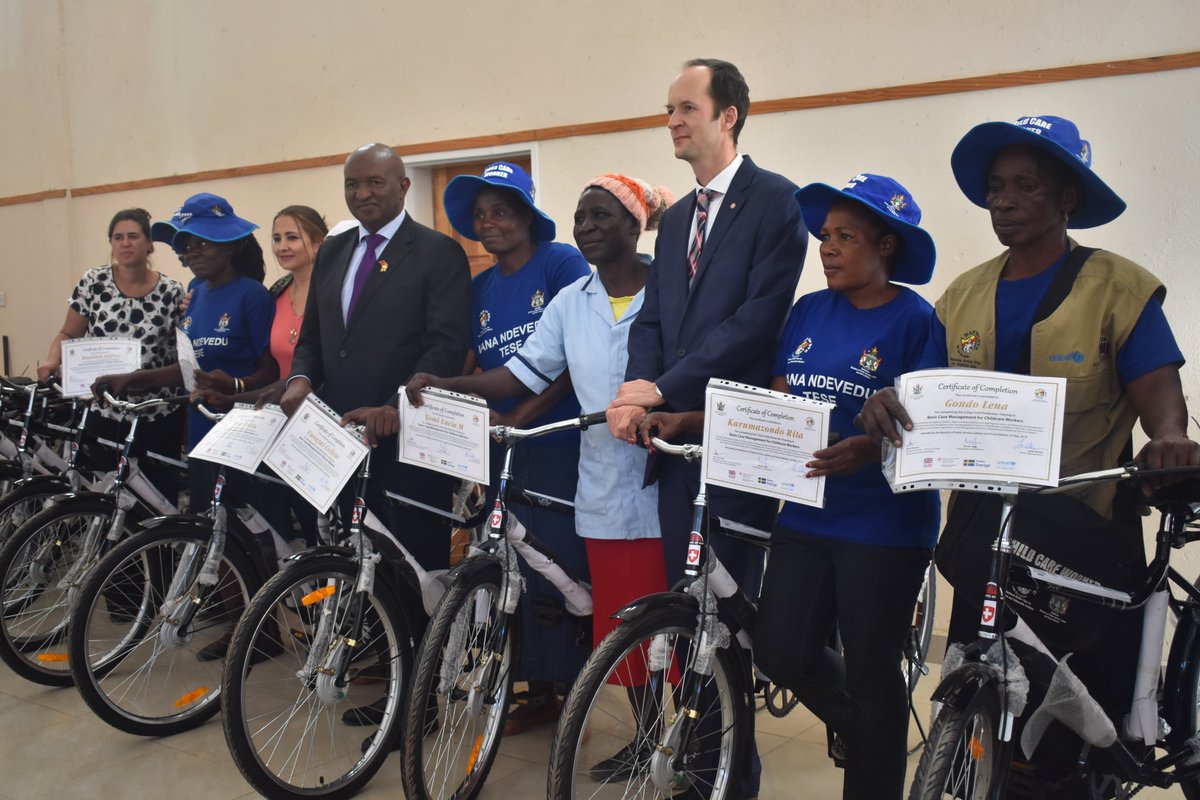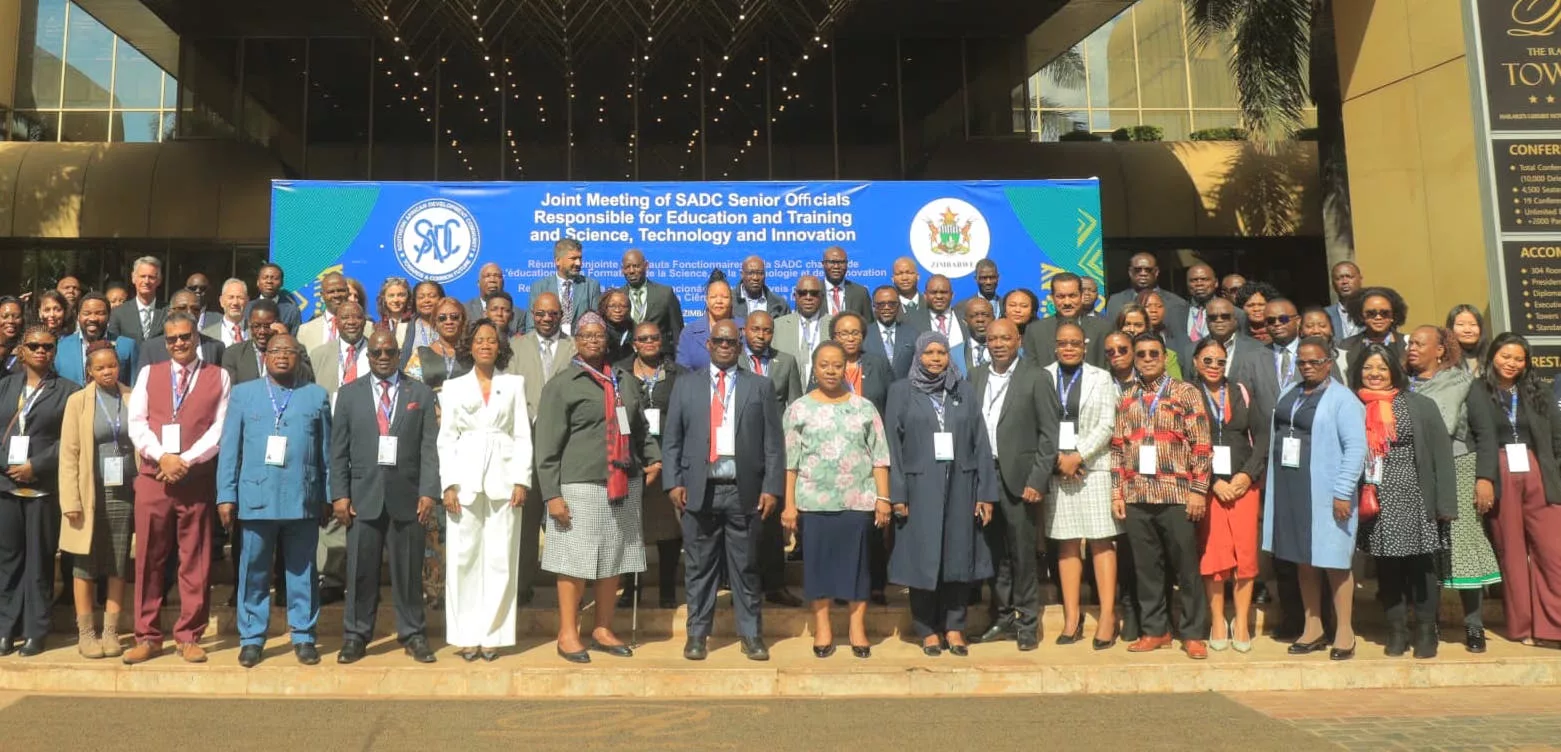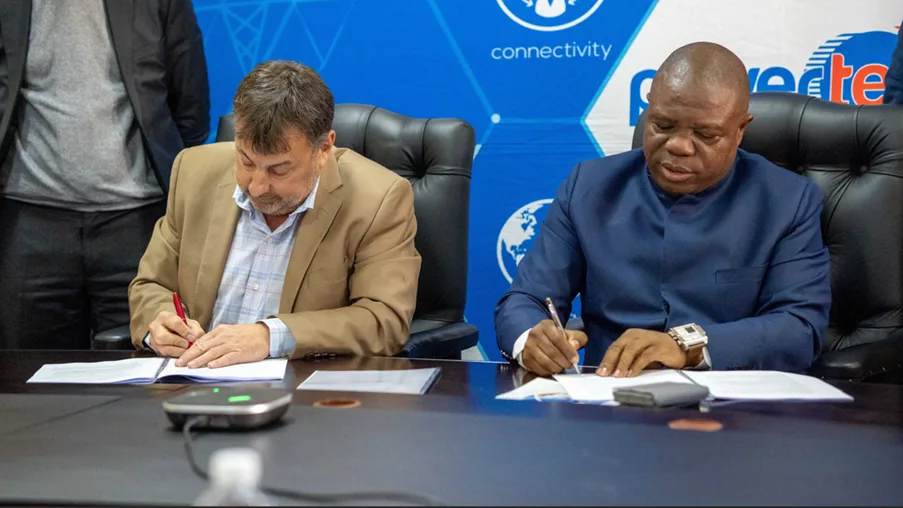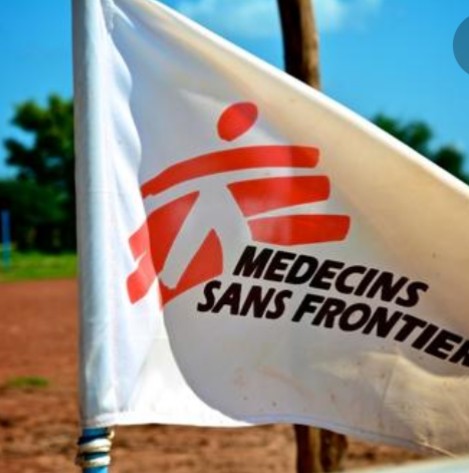UNICEF today presented the first batch of 2,857 bicycles to the Ministry of Public Service, Labour and Social Welfare to support and improve the ability of Community Childcare Workers (CCW) to provide child protection services in Zimbabwe. The vehicles will be distributed to Community Childcare Workers across the country in the coming months.
The bicycles were procured with funding from the Child Protection Fund (CPF II), a multi-donor pooled funding mechanism for the implementation of the National Action Plan (NAP III). The Fund is supported by the Swiss Development Cooperation (SDC); the Swedish International Development Agency (SIDA) and UK aid from the UK government.
“Community Childcare Workers are uniquely positioned to play a social protection extension programme role for all government social protection programmes, regardless of the Ministry. This is in line with destroying the silo mentality of programmes,” said Deputy Minister of Public Service, Labour and Social Welfare, Hon. Lovemore Matuke.
UNICEF and the Child Protection Fund support the implementation of child protection case management in 18 districts in Zimbabwe. Some 2,857 CCWs are part of the community social services workforce, responsible for following up on reported cases of child protection violations. One of the biggest challenges faced by CCWs is mobility, which hampers their ability to reach affected children and their families with services.
“Each community childcare worker brings to their work in the community, deep personal commitment, knowledge and experience. They rely on the mobility of a bicycle to visit the households they serve. UNICEF is proud to collaborate with your Ministry, implementing partners and donors to support the CCWs to do an invaluable job,” said UNICEF Representative, Laylee Moshiri.
In 2018, the Child Protection Fund supported over 54,000 children received comprehensive child protection services through the National Case Management System. Community Childcare Workers play a critical role in this system that provides children, families and communities access to improved and integrated child protection (prevention and response) services.
“We are very happy to be part of this amazing project that is doing such important work in communities. Our goal is to bring the greatest possible level of protection services to children in Zimbabwe. These volunteers come directly from the populations they serve. Sensitive questions that communities will not discuss with an outsider, they will ask Community Childcare Workers. And if we facilitate efficient mobility of these community volunteers, then we can further protect the children of this country,” said Ambassador Niculin Jaeger.
The CPFII supports the realisation of the vision of NAP III – to ensure that by 2020, children in Zimbabwe live in a safer and more conducive environment that ensures their care and protection and supports their sound growth and development. In order to realise this vision, NAP III sets out a broad-based approach for ensuring that families have means to provide for children, that children develop to their fullest potential, and that they are protected from abuse, exploitation and neglect.






